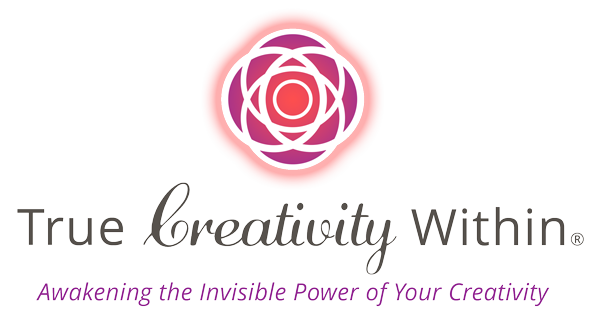The Wabi Sabi Art Journal
and Life Practices for Navigating a Challenging World
With Lisa Agaran
A 4-Session Event
Saturdays, April 6, 13, 20, 27
12 Noon-2:00 pm (PDT) | 3:00-5:00 pm Eastern
Options to attend: Attend Live on Zoom OR as Non-Zoomer (See details below)
Wabi Sabi is a Japanese philosophy that believes beauty can be found in what is naturally imperfect, aged and weathered. When we learn to accept what is unfolding before us without judgment and expectations, we allow more joy and flow into our art making.
In a day and age where our world has increasingly gotten complicated, cluttered, and even chaotic, how do we counterbalance this with more simplicity and moments of presence? How can we navigate our lives with more balance, centeredness and harmony?
The principles of the Wabi Sabi philosophy can give us guidance and practices that can be applied to our everyday lives. Such as letting go of expectations, and embracing change and uncertainty. Finding beauty in what is imperfect and cultivating calm in the simplicity of being present and mindful.
I truly believe when we practice some of these very same principles during the creative process and in our art practice, it strengthens our ability to navigate challenging and uncertain times in our everyday lives.
In this 4-Session Workshop, you will create your very own handmade art journal (no stitching required). Plus we’ll approach each art technique with the intention of learning a skill that we can apply and practice in life.
I will also guide you on how to be more mindful and present during the creative process through writing prompts & self-reflection exercises. This will help you develop a deeper awareness of your inner dialog and thought process.
Each class session will be recorded and accessible to all students for later viewing until June 22.
Adults 18+. Zoom information will be provided during the week prior to the class starting.
Non-Zoomer option: If you are unable to make the live workshop or prefer not to appear on Zoom, not a problem. Instead you can do the workshop through the recordings, which is emailed to all attendees at the end of the day. This recording will be available to re-watch until June 22, 2024.
What to look forward to
Session 1 – April 6 | Wabi Sabi & Creating Your Journal
- Wabi Sabi Origin & Principles
- Step-by-step building your journal (no stitching required)
- Homework for the week: Create your 2nd journal
Session 2 – April 13 | Gelli Printing & Embracing Change & Uncertainty
- Creating Wabi Sabi Paper with Gelli Printing
- Homework for the week: Complete the Fabric Paper Bonus Tutorial
Session 3 – April 20 | Finding Beauty in the Messy Middle & Being Present
- Fabric Textured Pages
- Alcohol Salt pages
- Homework for the week: Creating Your Journal Cover & following your creative intuition
Session 4 – April 27 | Mindfulness Practice of Asemic Writing
- The Art of Asemic Writing
- What is your journal cover calling for
Online Workshop Cancellation & Refund Policy
This class is not confirmed unless a minimum of 8 live attendees sign-up. A full refund is provided for cancellations made up to 5 days prior to the class beginning. If cancellation is received after 5 days prior to the starting date, no refunds will be issued but credit can be applied to a future class. Sorry no refunds once the class has begun. We reserve the right to cancel or reschedule a workshop/class if required. Should this happen, you would have the choice of a refund or transferred to a future workshop/class of your choice.
Please select “Attend Live” OR “Non-Zoomer” option below before adding this workshop to your cart.
$185.00
Materials You Will Need
- 12 x 18 in. 140 lb. watercolor paper (Final journal size will be 9 x 9 in.)
https://www.michaels.com/product/level-2-watercolor-pad-by-artists-loft-10712927
https://www.michaels.com/product/canson-xl-watercolor-pad-10145805 - 9 x 12 in. 70 lb. Drawing Paper OR 8 1/2 x 11 in. regular printer paper 24 lb. or bond paper
- Scoring Tool (butter knife, bone scorer, Kemper Double Ball Stylus Embossing Tool)
- Opaque Watercolor (OR regular Watercolor tubes)
- Acrylic paints (Fluid or full body) – a variety of colors in muted shades
- Gesso (white)
- Matte Medium, Decoupage or Mod Podge
- Aleene’s Quick Drying Tacky Glue
- Tissue Paper (and/or sewing pattern tissue)
- Cheesecloth
- Muslin Fabric or Cotton Quilting Fabric (not too thin) – 1/4 yard should be enough
- Embroidery floss, craft cord OR twine
- Colored pencils, gelly roll pens, ultra fine sharpie or Pigma Micron
- Metallic Gold Sharpie or Uni-ball Signo
- Metallic Gold Acrylic Paint
- 90% Rubbing Alcohol
- Table Salt
- Paint brushes (variety of sizes & styles, doesn’t have to be expensive brushes)
- Butcher tray or plastic plates for mixing paint
- Cup for water for brushes
- Sponge and bowl for water
- Hairdryer
- Spray bottle for water
- Variety of mark making tools (Sea sponges, credit card, putty spreader, palette knives, old worn-out paint brush, twine, branches, leaves, etc)
- Gelli Plate (8 x 10 inches or more) and & Brayer (rubber)
- Handmade papers (Washi, Mulberry, etc) OR Black Ink Scrap Pack OR on Amazon
- Xacto-knife, paper trimmer, or scissors
- Ruler/Straight Edge
- Silicon Mat, Saran wrap OR non-stick surface
- Saran Wrap (for gelli prints)
- Putty Spreader or burnisher for collaging
- Palette Knife
- Non-greasy hand lotion for Momogami paper making


















